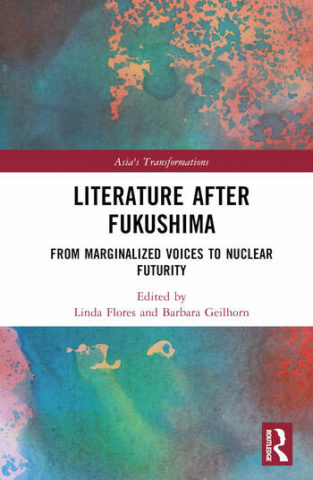Arts and Literature after Fukushima
October 2018 - September 2023
The earthquake, tsunami, and multiple meltdowns at the Fukushima Daiichi Nuclear Power Plant have had long-lasting and far-reaching consequences in what was already a sparsely populated region in Japan. Over a decade later, the haunting images of the disaster and the moving stories of its aftermath remain firmly embedded in the collective cultural consciousness. Since 2011, the reconstruction effort in coastal areas damaged by the tsunami has continued apace, but many towns now house a mere fraction of their former population and the problems related to the decontamination of irradiated zones remain unresolved.
Against this background, the 2020 Tokyo Olympics were held, belatedly due to the COVID-19 pandemic, in the summer of 2021. Designated as the ‘Recovery and Reconstruction Games,’ the Tokyo Olympics were meant to celebrate the recovery of the calamity-stricken areas and to signal to the world the official end of the 3.11 disaster. Arguably, the pandemic pushed the triple disaster and its lingering aftereffects even further out of the public eye. Despite the 10-year anniversary of 3.11 in March 2021, it is clear that the recovery is far from complete.
For many artists, 3.11 constituted a significant turning point; the series of cataclysmic events heralded fundamental transformations in the fabric of society. The project addresses questions such as: How do we define ‘3.11’, and what kind(s) of re-mapping does the calamity involve? Who can speak for and about the disaster? How do we articulate the voices of the dead and the disenfranchised? How do we remember the disaster, and what is the role of the arts in that complex process? Time is an important factor in how we interpret the disaster and its consequences. The temporal distance of more than 10 years since 3.11 will facilitate new approaches to artistic works in the years to come. The extraordinary nature of the triple disaster notwithstanding, the Fukushima calamity must be situated within the broader global context of our contemporary disaster-prone world.
Recent book publication
Linda Flores, Barbara Geilhorn (eds.), Literature After Fukushima. From Marginalized Voices to Nuclear Futurity. Routledge 2023.
Recent Publications
Events
Environmental Humanities in East Asia
Unearthing Multispecies Intellectual History: Minakata Kumagusu, Queer Nature and the Microbial Paradigm, 1887-1892
Environmental Humanities in East Asia
Cultural Specificity & Planetary Thinking: Reading Ishimure Michiko's Final Work
Environmental Humanities in East Asia
Toxic Food and Slow Violence in Japan’s Post-3/11 Literature
Team
 Barbara Geilhorn (until September 2023)
Barbara Geilhorn (until September 2023)